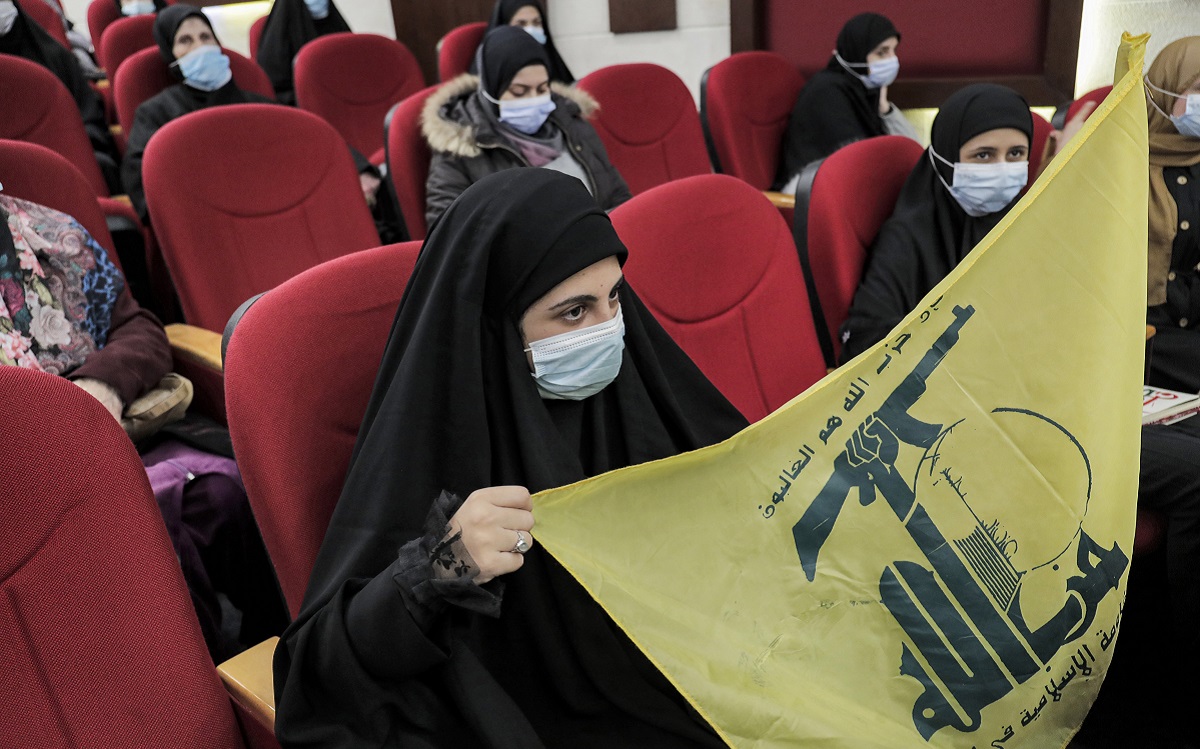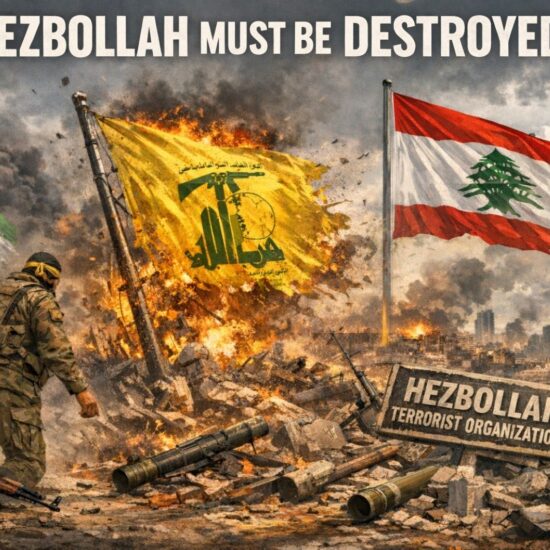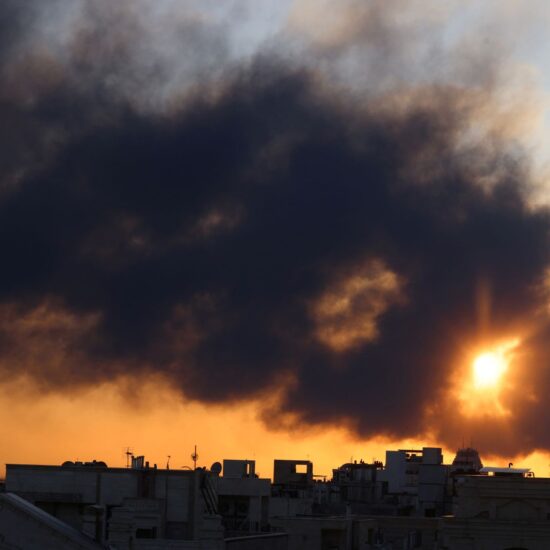
It all started with dismantling an alleged spy ring.
On January 31, Lebanon’s security forces announced that they had uncovered the largest spy network in Lebanon’s history, consisting of 17 networks containing members of NGOs, civil society, Lebanon’s security services and Hezbollah who allegedly gathered information in favor of Israel.
At least 21 people were arrested by the security forces and, according to the Hezbollah-aligned Al-Akhbar newspaper, of those arrested, 12 admitted to knowingly having been working for Israel while the rest said that they believed that they were just providing information to global companies and non-profit organizations.
While the news of the spy network was still fresh in the public’s minds, Al-Akhbar published a series of articles alleging that German and German-funded organizations were working to influence Lebanon through their soft-power and money with the biggest target being the Heinrich Böll Foundation, a political organization which is part of the German Green movement.
According to the reports, Heinrich Böll and Germany were funding organizations and groups that focused on issues such as governance and supporting civil society. In addition to this, Al-Akhbar alleges that, because of the way that the foundation tweets and when it publishes certain tweets, it is clear that the foundation is working to “spread Western ideas and influence to countries like Lebanon and Syria”.
This all culminated in another article, just days after these reports about Heinrich Böll were published, saying that Germans should be expelled from Lebanon and that any German who remains should “act from now on that you live in a hostile land.”
According to Diana Moukallad, the 52-year-old managing editor of Daraj, one of the organizations attacked for receiving German funds, this targeting of the West and organizations and groups funded by the West is being done partly because Hezbollah needs an enemy that they can position for the upcoming elections.
“It’s obvious that Hezbollah is building a new enemy preceding the elections and the enemy is the civil society,” Moukallad told NOW. “Demonizing civil society and linking those who work in media and other civil society fields, labeling them as spies, is something just to make them vulnerable and as a target.”
On top of this, these organizations oppose Hezbollah and are seen as a threat to the group and its control over its constituency.
Creating a new threat
In previous elections, Hezbollah had a clear opposition in Saad Hariri and his Future Movement along with his allies such as the Christian Lebanese Forces headed by Samir Geagea and the Druze Progressive Socialist Party headed by Walid Joumblatt.
However, Hariri announced on January 24 that he and his party would be retiring from Lebanese politics. In consequence, there is no longer any clear opposition to Hezbollah outside of the Lebanese Forces, which despite Geagea’s rhetoric, is not a big enough threat to the armed Shiite group as the Christian vote is split with the Free Patriotic Movement, a staunch ally of Hezbollah.
Because of this, Moukallad argues that Hezbollah needs a serious existential threat that they can use to mobilize their constituents and the Shiite throughout the country to vote for them and their allies.
In addition, focusing the discussion around spying and the West trying to influence Lebanon draws away from people’s worsening struggles amid the ongoing economic crisis.
“Enhancing the conspiracy theory around the whole thing happening in Lebanon is helping them divert attention from the real suffering of Lebanese people and, especially, the Shiite constituency,” Moukallad explained.
Along with creating an enemy for their supporters to rally against, the organizations and groups supported by the West also represent an existential threat to Hezbollah.
Enhancing the conspiracy theory around the whole thing happening in Lebanon is helping them divert attention from the real suffering of Lebanese people and, especially, the Shiite constituency.
“German funding is supporting democracy in Lebanon, and opposition groups and platforms,” Ralph Baydoun, a media specialist, told NOW. This is understood by Hezbollah as a threat and an agenda that contradicts their own, this is why they place these issues under the spotlight and address them as such.
The German Embassy in Lebanon and European Delegation in Lebanon did not respond when asked for comment on the attacks against them and the groups and organizations that they support.
The fact that many of the groups supported by the West work within the spheres of governance, civil society and democracy makes them an easy target for Hezbollah.
“If you want to look strategically on how the German organizations are supporting political parties and organizations in Lebanon I don’t think they are inclusive enough with diversifying their portfolio on who they are supporting,” Baydoun said. “This is because they only support the people they’re politically aligned with.”
Yara Asmar, a researcher on Middle East politics and contentious politics in Iran, also argued that the attacks on Western and Western-funded institutions is a tactic taken straight from Iran’s playbook as a way of supporting the image of a western enemy.
“It is the constant spread of conspiracy which nurtures the image of an enemy trying to steal the identity of the collective they believe in,” Asmar told NOW. “These were the main tools of the Islamic Revolution in Iran adapted and renovated based on the context.”
Moukallad argues that targeting groups and media outlets like Daraj is “silly”, as many of them are very transparent about where they get their funding from and where it goes, making it pointless to implicate them in a Western conspiracy to influence Lebanon.
For Moukallad, transparency is very important and if they are going to demand it from others, then it is only fair for them to do the same.
“We are very open about our funding, about our goals and we believe so much in what we do,” the editor stated. “Are we promoting any crime? Are we promoting corrupt partners? No. That’s not true. We are pushing for accountability.”
She added that the work that Daraj and other groups are doing to expose “corruption and those who are committing crimes against Lebanese people” is what “Hezbollah is pissed about.”
However, what is important to Hezbollah is that these groups are being funded by the West and their work looks to influence the direction that Lebanon goes in, often leading away from Hezbollah and its ambitions.
According to Baydoun, any group or individual that poses a threat to Hezbollah’s dominating influence in Lebanon faces a strategy that has worked in the past to discredit any enemies that they deem to be a significant threat.
A tried and true system
Hezbollah has faced many critics since its inception in the 1980s. Such critics only increased and intensified after the assassination of former Prime Minister Rafik Hariri in 2005, the July war with Israel in 2006, and the boosted power of Hezbollah in Lebanon through its arms and dominance in the political sphere through its alliances.
During the popular uprising that started on October 17, 2019, many Shiites in the southern suburbs of Beirut came out in opposition to the political establishment, including Hezbollah and the other Shiite party, the Amal Movement, headed by Parliamentary Speaker Nabih Berri.
At the start of the uprising, videos began circulating of Shiite protesters cursing and calling for the end of Hezbollah and Amal.
“When they reached social media, those videos went viral. People were supporting their moves, they were saying that they were so courageous for speaking against those two political parties in the southern part of Beirut and encouraged many others to join the protests,” Baydoun recalled.
These protests in the southern suburbs were short-lived, however, as soon after, the same people in these videos that condemned Hezbollah’s leader, Hassan Nasrallah, and Berri were then seen in new videos surrounded by photographs of the two Shiite leaders, apologizing for their actions. They were victims of what in Lebanon is called the “sahsouh,” Arabic for a slap on the back of the neck meant to chastise someone for crossing a line.
“From what happened earlier and throughout the past two years, Shiite opposition voices are highly targeted through direct, targeted messages, or indirect, cyberbullying, threats,” Asmar stated.
According to Asmar, Hezbollah’s response to a threat depends on how significant it is.
There are “annoying” voices that serve to divert the message away from what Hezbollah is promoting and there are “threatening” voices who work to create a rebellion among the Shiite community against Hezbollah.
“The goals of Hezbollah are clear and leveled: silencing, threatening, intimidating, spreading terror. And the leveling [of a response] depends on how serious the case is,” Asmar said.
In cases that involve “annoying” voices, the response could be a subtle reminder from the Shiite group not to oppose them, such as through a program on the Hezbollah-owned television channel Al-Manar.
However, in the cases where the individual or group poses a serious threat, then Hezbollah takes careful and calculated steps in order to discredit them.
It all starts, Baydoun says, with putting the idea into the public discourse.
One of these ways is through pro-Hezbollah media outlets like Al-Akhbar.
“They start on this level, introducing this [idea] into the public opinion,” Baydoun explained. “Like NGOs are the enemy and NGOs are working against us.”
From there, political speakers, either a member of or affiliated with Hezbollah, start to speak about it or even expand on it.
The result of that is shaping the public opinion towards portraying those organizations as their opponents engaged in acts of treason towards their communities, which can develop into violent narratives justifying any act of violence.
In the case of the anti-West attacks, the head of Hezbollah’s political council, Ibrahim Amin al-Sayyed, spoke out against the United States, saying that they “want our weapons, our resistance, and our society so that the word in our country is for Israel and America.”
“The Americans, the Israelis, and the Europeans want arms, resistance and society, to come to a parliament that can elect a president of the republic who forms a government that can do whatever they want,” al-Sayyed said during a political meeting organized by Hezbollah at a Husseiniyeh, a religious gathering center for Shiites, in al-Ain, a town in northern Bekaa.
Al-Sayyed went on to say that people were being paid anywhere from $50 to $100 for their votes. He offered no evidence to support his allegations.
Finally, Nasrallah himself might address the issue.
The Hezbollah leader has not spoken about the recent claims that the West is trying to interfere and influence Lebanese politics through NGOs, civil society and media organizations to be more in line with Western ideals, but he has spoken about the topic in the past.
“The result of that is shaping the public opinion towards portraying those organizations as their opponents engaged in acts of treason towards their communities, which can develop into violent narratives justifying any act of violence,” Baydoun stated. “We already know that they are the traitors. They are the enemy.”
With Lokman Slim, a political activist and author vocally critical of Hezbollah who was assassinated on February 4, 2020 during a trip to south Lebanon, an area controlled by Hezbollah, he faced what many deemed to be a “hate network” that utilized countless social media accounts to attack the writer in the hopes of discrediting him.
When Hezbollah sets its sights on an individual or group that it views as a threat, Asmar says that they are “careful with their choices” and make sure to avoid making any “faux pas.”
What they consider to be a success varies from case to case.
“They are very strategic,” Asmar said. “But silencing someone like Lokman Slim is the highest standard of success of Hezbollah. The alternative voices according to them cannot get loud.”
The aftermath
Working in the media field or with an NGO or civil society group in Lebanon has long held risks.
In its 2021 Democracy Index, the Economist Intelligence Unit classified Lebanon as a blend of a “hybrid regime,” which has widespread corruption and weak rule of law, and an “authoritarian regime,” where civil liberties are disregarded and the government squashes any criticism.
“We are not in Syria, Iraq or Egypt and I hope that we will not reach that point,” Moukallad stated.
“This is a real battle of expression and the civil society. This is the real asset that we have in Lebanon. That we have a space for civil society to work in. I’m not saying it’s perfect but I’m saying that the space we have for media and civil society and NGOs is something that everyone is targeting.”
Asmar agreed that freedom of expression is at risk in Lebanon, especially since “we do not trust the system to protect activists and journalists with a specific opinion.”
It is not just physical attacks that are feared, but also the attacks meant to discredit opposition voices through politically affiliated media outlets, political speakers and social media networks that work together to attack an individual or group.
Attacking NGOs, however, could have serious consequences when it comes to helping Lebanon. If they do not have any credibility and people refuse to work with them, their beneficiaries and work would be greatly obstructed.
“If this organization wants to work with people in the south, they can’t,” Baydoun stated.
“On top of that, you need to add the problem with Hezbollah being labeled as a terrorist organization by the West. It limits most of the development work and humanitarian assistance happening in Lebanon to a certain part of Lebanon because municipalities and ministries that are under the geographic influence of Hezbollah are excluded from any work because of donation requirements.”
This is a real battle of expression and civil society. This is the real asset that we have in Lebanon. That we have a space for civil society to work in. I’m not saying it’s perfect but I’m saying that the space we have for media and civil society and NGOs is something that everyone is targeting.
Despite Hezbollah’s vilification of the West and any group or organization that receives their funding, Baydoun does not believe that it will get to the point of physical attacks, citing Nasrallah’s speech following the killing of Iranian Revolutionary Guard Commander Qassem Soleimani where the Hezbollah leader urged the group’s supporters to not take out their revenge on any American in Lebanon and to reserve it for American soldiers.
“Just the fact that international organizations are not able to work with half of Lebanon is already something that has an advantage for Hezbollah,” Baydoun said. “I think it would just be on a policy level they would cripple the organization’s work and they would discredit it so that their community is intact.”
Moukalled is not worried about her safety, but is concerned about the future as any potential threat to Hezbollah is quickly silenced.
“They want to get rid of those who are exposing them and this is the real battle,” she stated. “Yes, we should be alert. We should be aware. The intimidation is there.”
Nicholas Frakes is a multimedia journalist with @NOW_leb. He tweets @nicfrakesjourno.








